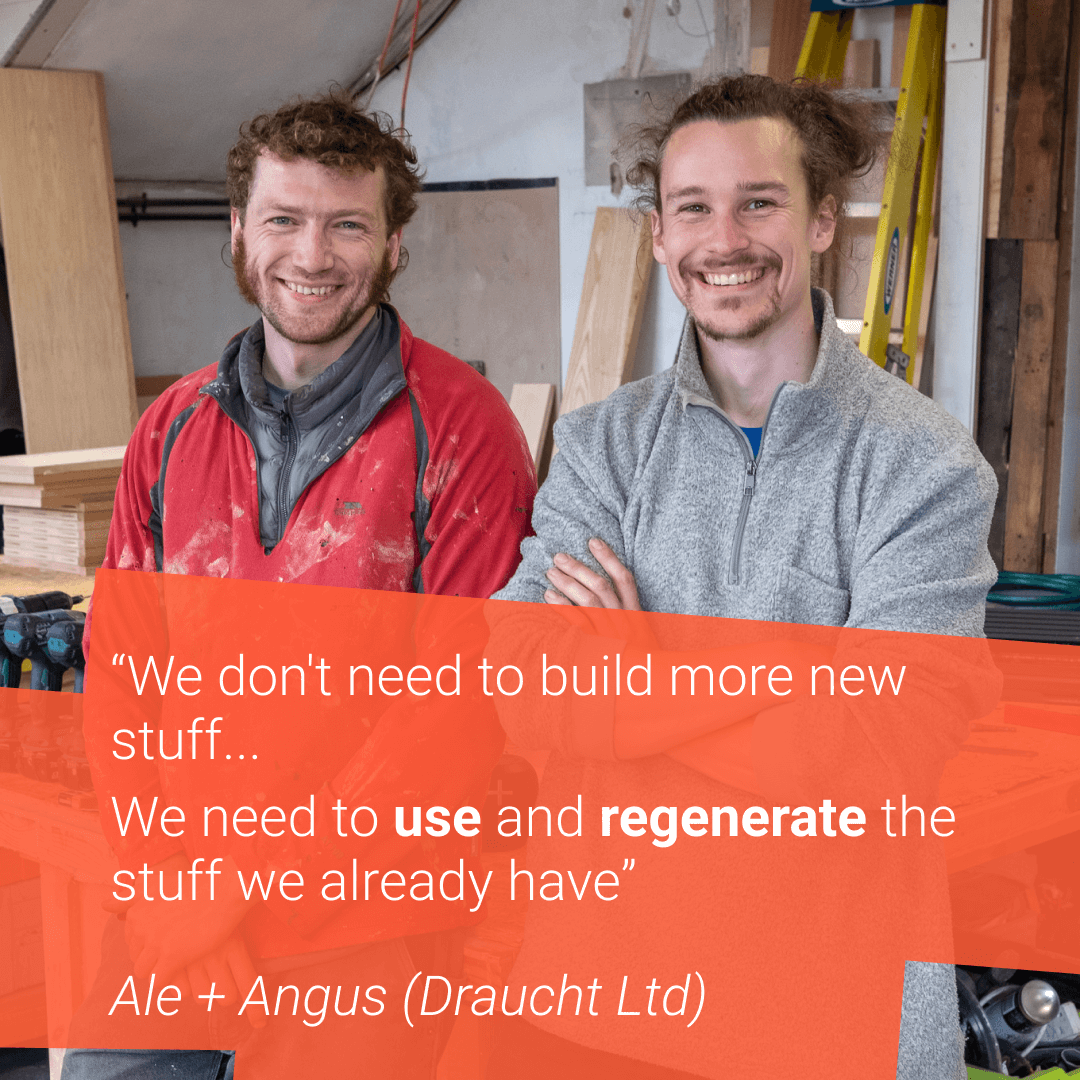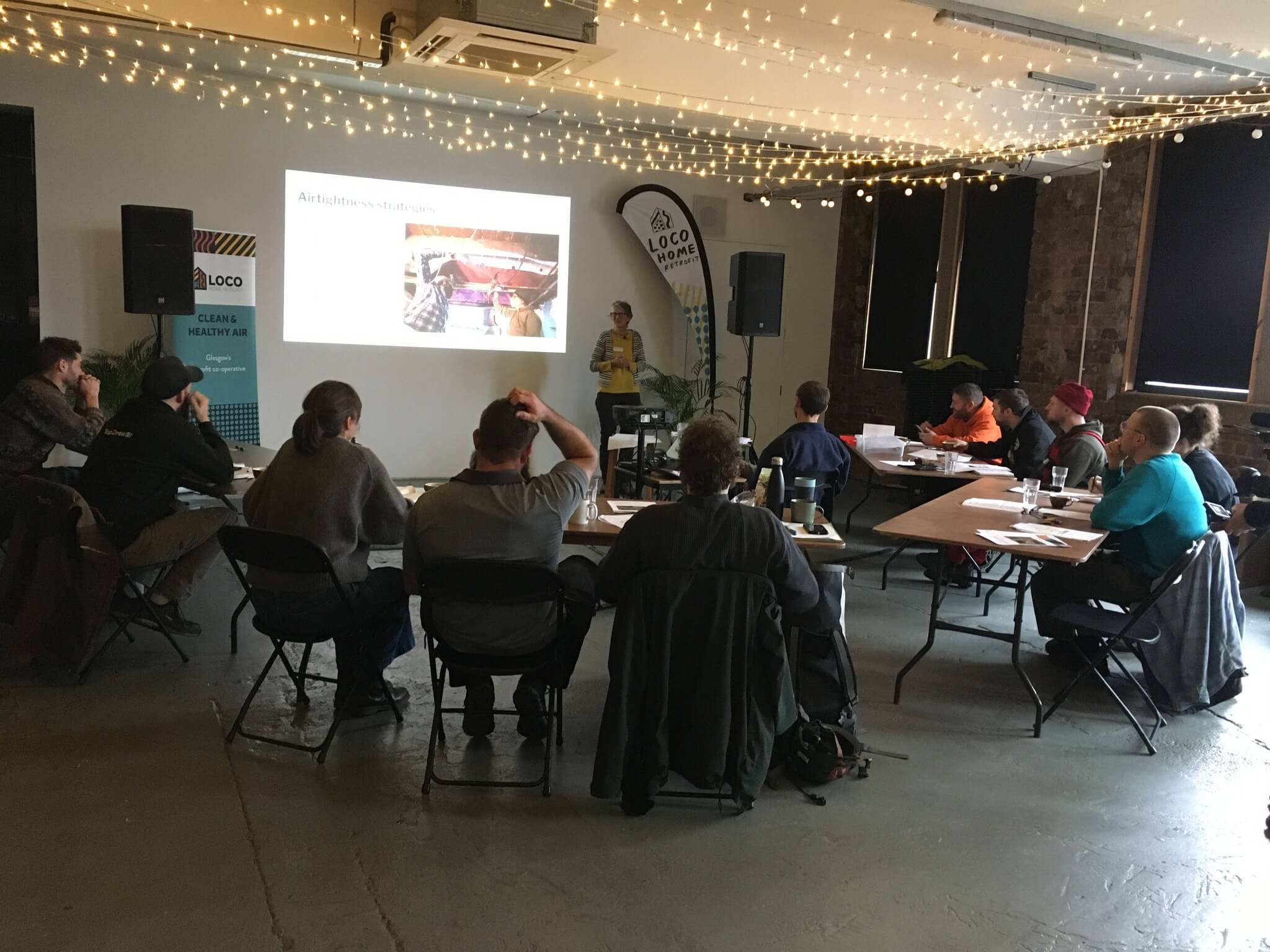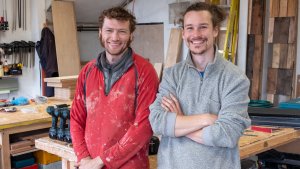
GETTING STARTED
Alessandro was 18 when he started an apprenticeship in joinery with a local building company.
“I really enjoyed it,” he says. “I did two or three years of that, combining it with volunteering, community work and activism.”
Ale found himself getting told off at work because when he was sweeping up, he would pick out all the screws and try to separate all the plastic.
“The other guys were like: ‘What are you doing? We don’t have time for this,” says Ale. “Everyone was dropping rubbish down the cavities and walls because, as far as they are concerned, they’re not going to be around if that ever gets opened up again.”
Disillusioned, Ale left his apprenticeship and decided to study architecture. “Something that would give me a skill set to support others and do better community work,” he says.
“Since I was a teenager, I have been involved in various build projects and courses to continue developing my knowledge and skill set in construction.”
Ale’s architectural studies progressed well but left him feeling that architectural education is flawed.
“Some tutors talked about building efficiency, but it’s not a key aspect of your course. That might be different now – but too little, too late, if you ask me.”
“I tried to put environmental sustainability at the forefront of my projects. Tutors would say, ‘You’ve not got enough time for this.’ Anything to do with social, community or environmental benefit was a bonus – it wasn’t integral to your submissions or studies. That was really frustrating to me. This was why I came to study architecture.”
He finished his degree but decided against becoming an architect. “I went back into community work and did some small building projects, furniture making and art installations.”
“I wanted to study something that would give me a skill set to support others and do better community work.”
In 2022, aged 28, Ale found himself back working on a site with builders who were socially and environmentally conscious. He loved it and realised he wanted to do it work full-time.
With Angus, one of the guys on the team, Ale, set up a sustainable production company, Draucht, in July 2023.
“Draucht uses salvaged materials. Angus runs an architectural salvage company based in Lanark. We’ve done things like going to the Glasgow School of Art and taking all their plywood out of their studios. We’ve got it stocked up and use it to make furniture.”
Draucht is currently working on a project with students at Glasgow School of Art – sharing sustainable construction and salvaging techniques to build a sauna with the students.
“It’s all environmentally sustainable materials or regenerative materials with salvaged timber. We’re not using any plastic. I’m into breathable, plastic-free architecture design, if possible.”
“We’re trying to make it quite high-spec so we can lease it out to make back the money we’ve spent building it,” he says. “The students have been loving it.”
“It’s all environmentally sustainable materials or regenerative materials with salvaged timber. We’re not using any plastic. I’m into breathable, plastic-free architecture design, if possible.”
JOINING LOCO HOME
Ale and Angus are keen to collaborate with other tradespeople and contractors, using Draucht as a vehicle to share sustainable construction techniques and technologies.
Ale heard about Loco Home last year through his friend Angus Brodnax [Retrofit Assessor at Loco Home Retrofit].
“I joined Loco Home as soon as Angus told me about it. I believe in what they’re trying to do. And I love that they’re trying to support people to retrofit. It’s all part of demystifying the construction process.”
Ale recently attended a Loco Home sustainable retrofit course.
“That was something that, in theory, I understand, but it was great to have sessions with an expert about sustainable retrofits. That’s important because we don’t need to build more new stuff. We need to use and regenerate the stuff we already have,” says Ale.
“In Glasgow, we’ve got these beautiful sandstone buildings that have been expertly built. Some of them are well over 100 years old and are still standing, albeit they have been abused and had the wrong materials applied to them,” he adds.
“We’ve got plenty of built environment and more than enough resource for people. We need to extract less and reuse more.”
Ale appreciated the learning and networking opportunities afforded by the Loco Home courses.
“I met other like-minded people. I’ve already contacted the workshop facilitator for advice about the green sauna we’re building. Through the Loco Homes courses, I’m getting more clued up.”
“When you work with clients, it usually comes down to money, but if you can explain why something costs more money, there’s a greater chance they’ll opt for that. And that’s an entirely positive thing.”
Through the Loco Home forum, a couple contacted Ale and asked for a quote for kitchen cabinets, as they are interested in using salvaged materials.
“They said, if it’s salvaged materials, it doesn’t matter about the cost,” he said. “Sometimes, you find people who are environmentally conscious, and either money doesn’t matter because they know they’ll eventually get a return, or they’re not worried about a financial return; they’re worried about the planet and their children,” he adds.
“That’s really affirming for this work. And really instils hope.”
“We’ve got plenty of built environment and more than enough resource for people. We need to be extracting less and reusing more.”
Draucht is a purpose-driven company that aims to “demystify and democratise the construction process” Ale sees Loco Homes as a support mechanism to achieve this through networking and knowledge sharing.
“I have a lot of different goals, which span across and beyond construction and architecture – I’m really into community benefit and well-being,” says Ale.
“I’d ideally like to get to a place in the next five years where I have, or am working on, a sustainable show house project called ‘Grow Your Own Home,’ made entirely from locally sourced or regenerative materials.”
“Essentially, I see Draucht as a vehicle to get to that place.”
“I have a lot of different goals, which span across and beyond construction and architecture – in my work, I want to have community benefits aspects.”
Words by Scott Skinner
Contact Ale [email protected]



